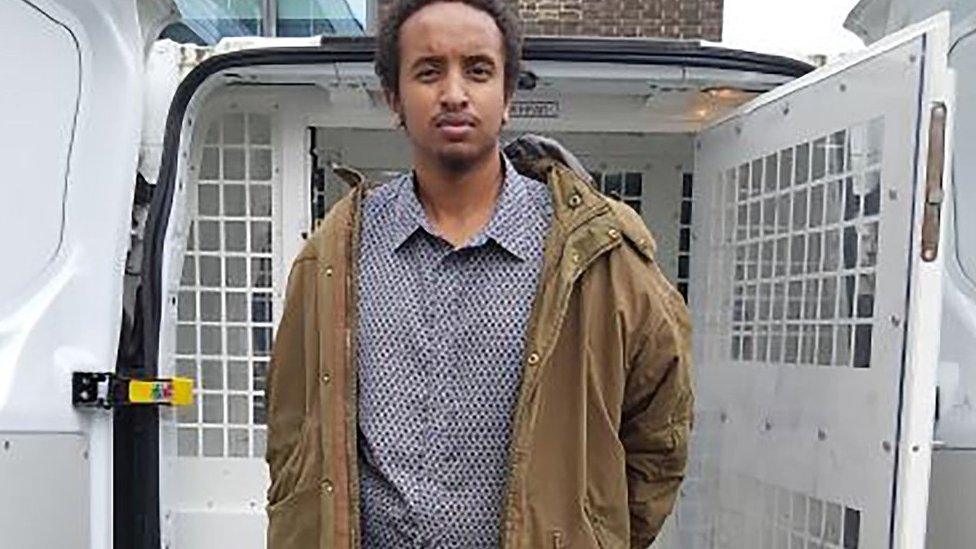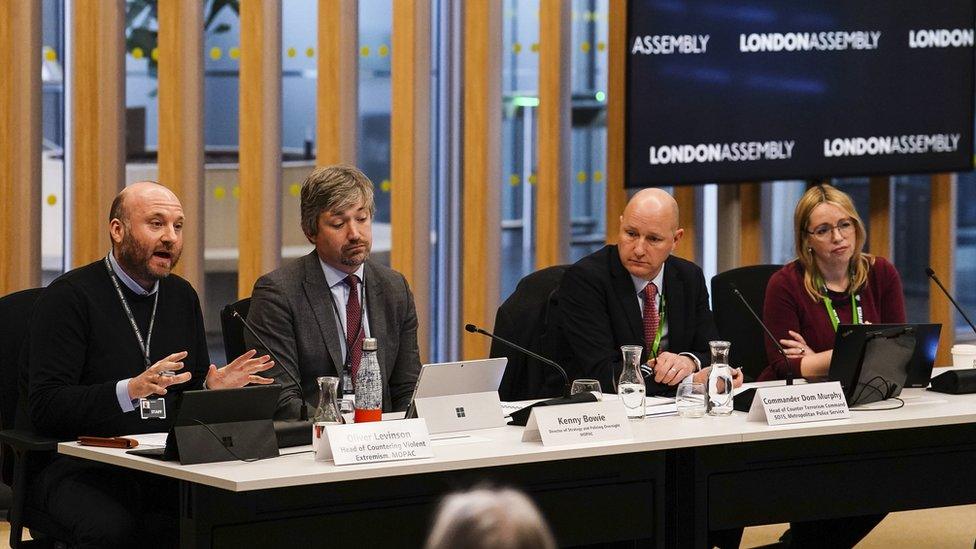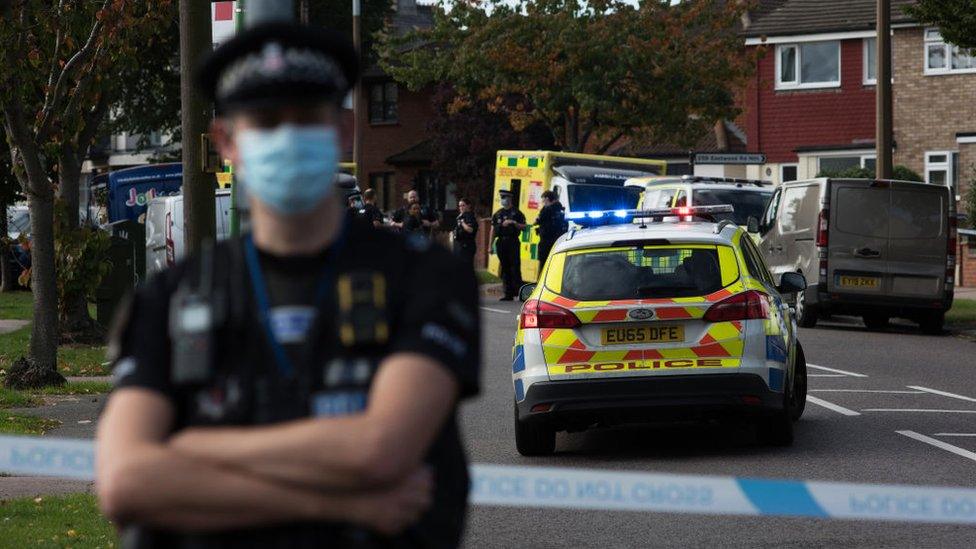London's counter-terror Prevent referrals buck UK trend - meeting
- Published

Ali Harbi Ali, who murdered Sir David Amess MP in 2021, engaged with Prevent between 2014 and 2015
Most of London's anti-terrorism referrals are for "Islamist activity", bucking a national trend, London's Police and Crime Committee has heard.
Latest figures from Prevent show there were more than three times the number of referrals compared to right-wing extremism, the meeting heard.
London Assembly members were putting questions to the Met Police and the Mayor's Office for Policing And Crime.
Met Police Commander Dom Murphy said: "Our focus is where the threat exists."
Prevent is a key part of the UK's counter-terrorism strategy and places public bodies, including schools and the police, under a legal duty to identify people who may turn to extremism, and intervene in their lives before it is too late.
But in a recent highly critical independent review, Prevent was said to have "apparently failed" repeatedly to identify attackers.

London Assembly's Police and Crime Committee discussed the Prevent review with members of the the Met Police and the Mayor's Office for Policing And Crime (MOPAC)
The report from the Home Office's hand-picked reviewer, William Shawcross, said that while eight out of 10 plot investigations were linked to Islamist causes, less than a fifth of Prevent's caseload was in the same area.
Too often, he argued, there was "a culture of timidity" when it came to tackling Islamism.
The committee was discussing the review with the Met Police and the Mayor's Office for Policing And Crime (MOPAC).
Kenny Bowie, director of strategy at MOPAC, told the meeting the data for the capital did not reflect the national picture.
"The latest figures that we have for this show that there were over three times as many Prevent referrals in London related to Islamist activity than there were I think for extreme right wing [views].

There are more referrals for Islamist ideology in London than right-wing extremism, Kenny Bowie, director of strategy at MOPAC, says
"It was 384 against 122, so that would suggest that they are going, and they should go, where the threat is."
Oliver Levinson, head of the Countering Violent Extremism programme at MOPAC, told the committee Prevent had delivered "good work" but was not "without its shortcomings and failures".
He said of the 34 recommendations in the review, which the government had accepted, MOPAC agreed with some and not others.
He called for more to be done to raise awareness of the Prevent strategy, the signs of radicalisation, and what help and support could look like.
Commander Murphy told the committee meeting it was difficult to take a national view on Prevent when it had "very local implications".
"We don't recognise in London that we have removed our focus from Islamist ideology. We still see the majority of Islamist referrals into Prevent here in London.
"Our focus is where the threat exists. We're agnostic to what that ideology is and we're harm focussed."

Follow BBC London on Facebook, external, Twitter , externaland Instagram, external. Send your story ideas to hellobbclondon@bbc.co.uk, external
- Published8 February 2023
- Published20 October 2021
